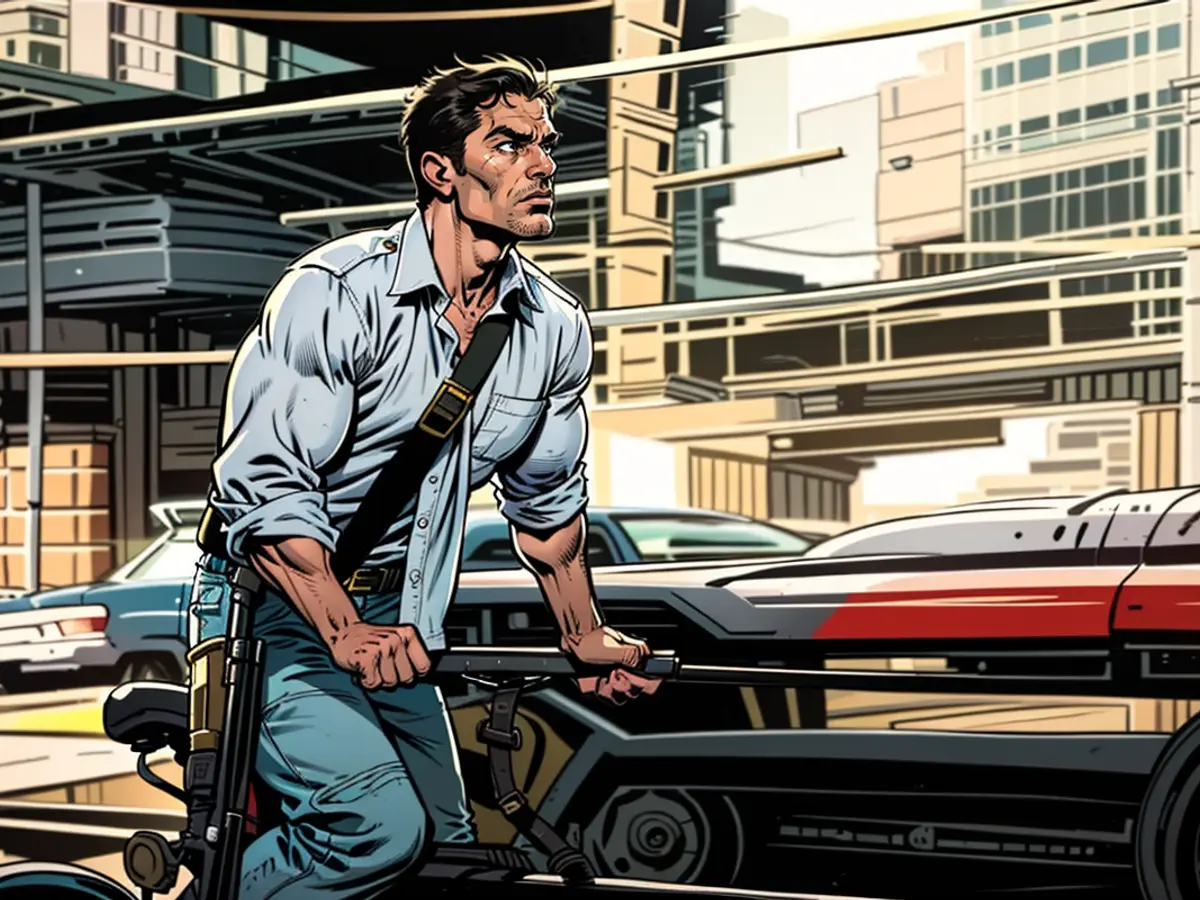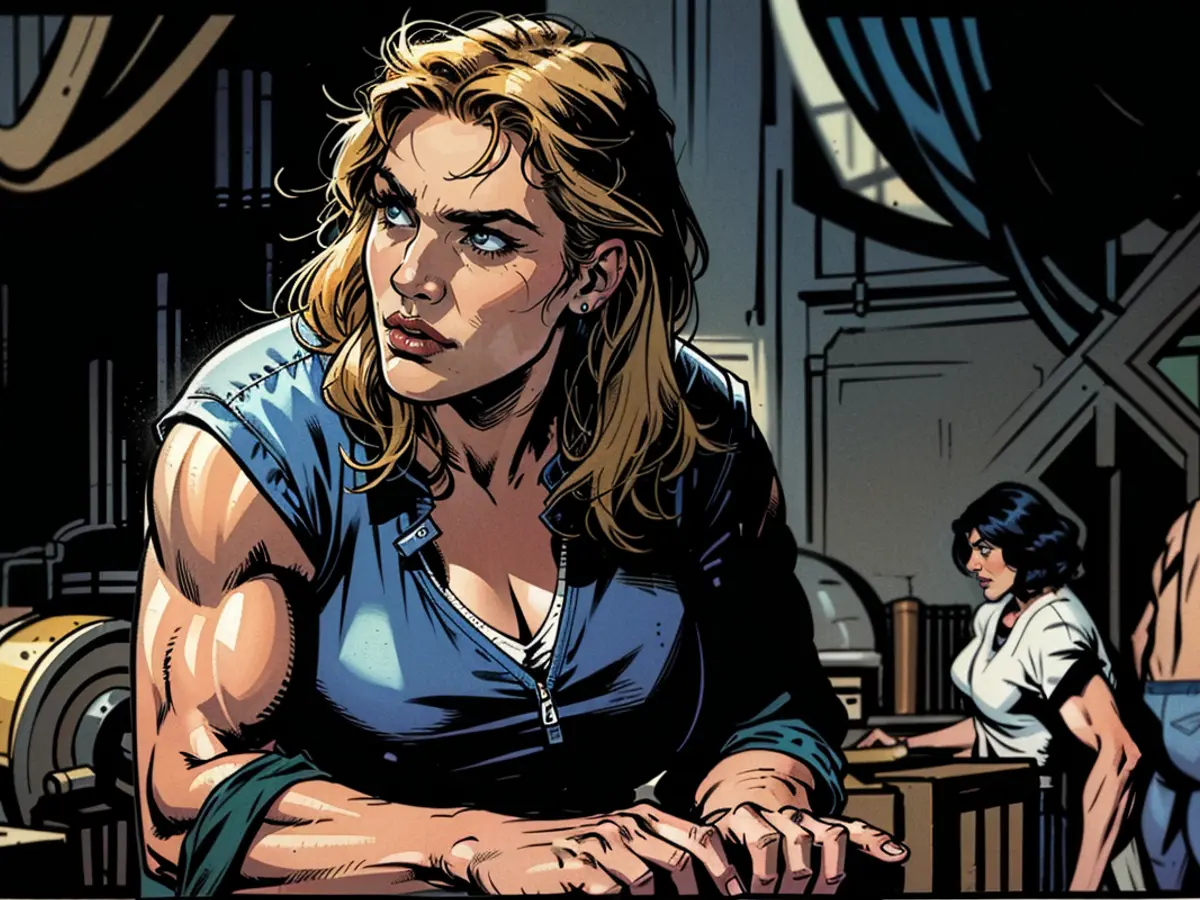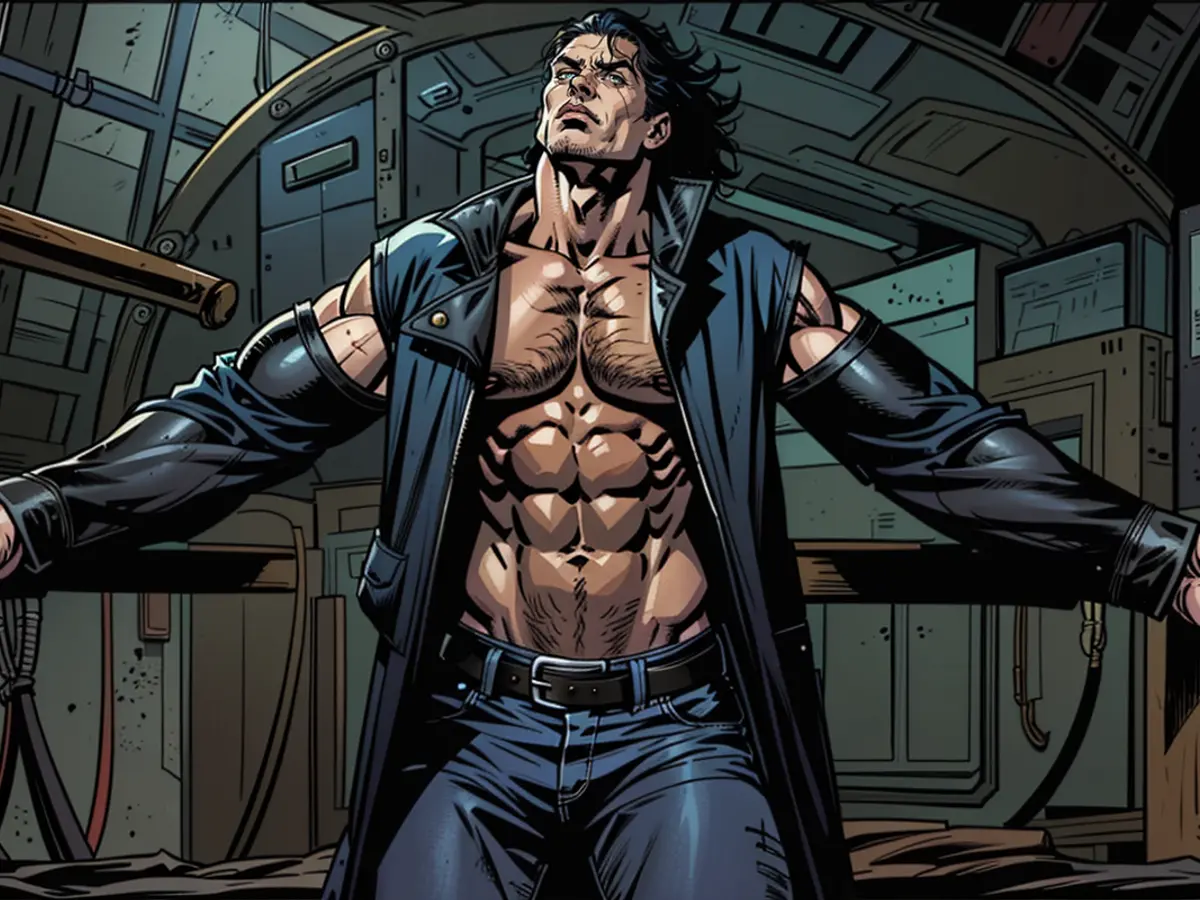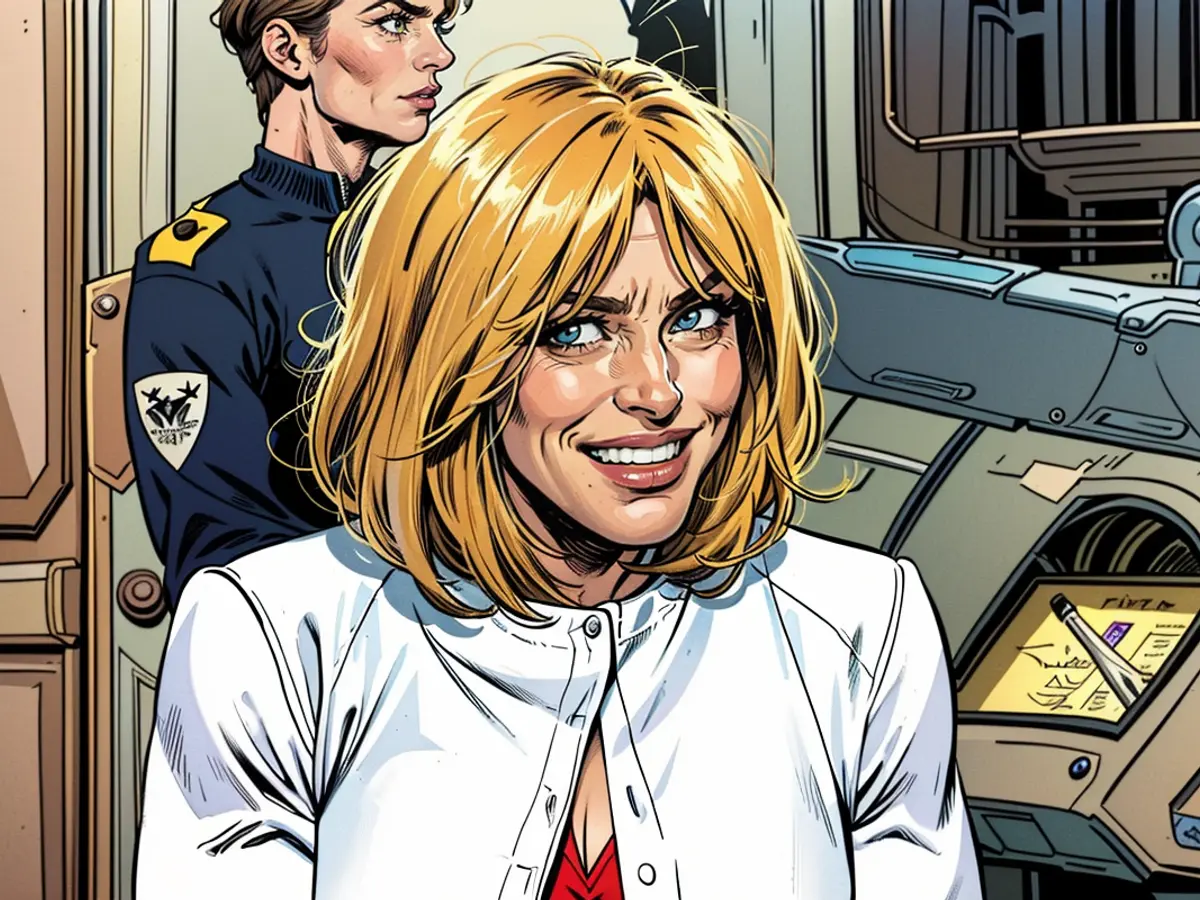Jewish film event bravely confronts apprehension
ntv.de: How has the world changed on October 7, 2023 impacted the Jewish Film Festival Berlin Brandenburg?
Bernd Buder: The goal of terrorists is to divide society and instill fear. We refuse to give in to this pressure. This is why we've added the film series "Dealing with Fear" to our program. It's not just about terror attacks against Jews, but any fear-inducing incident. A film festival is meant to foster dialogue and ask questions in all directions. Cinema provides unique experiences and personal stories.
Are you not concerned about potential dangers with the current crisis?
Antisemitism has been around for a long time. The Jewish world is continually battling it. Conflict in the Middle East isn't new either. What's concerning is that it's escalating now. However, we believe that now more than ever is the time to stand strong and press on.
The film "Supernova: The Music Festival Massacre," about the terror attack on October 7, 2023, is also included in your festival. What reactions do you think the audience will have to seeing the massacre on the big screen?
The movie is intense and puts the audience right in the heat of the action. It features many handheld footage of people being pursued and slaughtered. Survivors also share their accounts. This can be overwhelming, but in a theater, the audience is not alone in their thoughts and feelings. After the screenings, there is a discussion with Gal Dalal, a survivor of the massacre, and director Duki Dror. The movie will continue to engage the audience beyond the screening.
Why did you decide to show the film?
We debated long and hard about whether or not to show the film. Ultimately, we felt that it would be inauthentic to omit it. Our primary focus was on the victims, those who were killed for the sake of Palestine by Hamas. Many of the victims, like Shani Louk, were part of the Techno- and Trance-community. People from that scene showed strong solidarity with Palestine after the attack. This solidarity is misplaced and naive, as they would be among the first targets of Hamas.
Is there a memorial minute planned?
I'm not much of a fan of rituals. If people see the "Supernova" movie, that will be their memorial. Many films in our lineup promote empathy. Our selection of films is a statement for great movies.
What are "great" movies for you?
We oppose movies that preach. A great movie raises questions and stimulates thought. For example, the Israeli film "The Vanishing Soldier" by director Dani Rosenberg. In this film, the 18-year-old Shlomi, an Israeli soldier embroiled in the horrors of the conflict, one day discards his rifle and flees. He only wants to be with his girlfriend. The movie was made before the 7th of October. After the terror attack, it takes on a different meaning. For me, it's a universal film that could represent other wars as well. The theme of military service resonates with everyone in some way. Even in Germany. When I saw the movie, I could identify with Shlomi.
"The Vanishing Soldier" is an Israeli production. Out of the 71 films in your lineup, 27 are from Israel. Is this a political statement?
Israeli films are rarely showcased on international festivals. Ninety percent of Israeli filmmakers criticize the current government's policies. We share their substantial criticisms with the Israeli film scene. However, we are not an Israeli film festival, but a Jewish film festival.
The distinction is important to you.
Yes. Israel is the most significant refuge for Jews in the world. There are Arab and Christian Israelis, but Israel is primarily a Jewish land. In this sense, a Jewish film festival in Berlin Brandenburg cannot disassociate itself from Israel. But the Jewish Film Festival Berlin Brandenburg aims to show all facets of Jewish presence, history, and future. The term "Jewish" encompasses everything from romantic comedies to experimental films. Audience members can discover many new perspectives with us.
What new perspectives?
We are often portrayed as victims in films, and films about the Shoah often focus on Jewish family stories and share similar dramaturgy, structure, and music. The film "Revenge: Our Dad the Nazi-Killer" offers a new perspective. It tells the story of Boris Green, a Jew from Belarus who emigrates to Australia after World War II. Decades later, his sons suspect that their father, who were Nazis who had fled to Australia, were killed. Revenge and self-justice are themes in films about the Shoah that are rarely explored. We don't want to always portray Jews as victims.
Do you show films that represent other sides of the conflict?
The term "sides" doesn't sit well. Conflicts in the Middle East aren't like a football game, everyone in the region is impacted. Our film choices reflect this reality. For instance, the short film "Ordinary" portrays a young Palestinian attempting to illegally cross the border into Israel, only to be caught by an Israeli soldier. Surprisingly, instead of following orders, the Israeli soldier chooses to let the young Palestinian go. I'll keep the rest a secret. This film wonderfully depicts how everyone is affected by the conflict.
How does such a film foster hope for peace?
Achieving peace requires the goodwill of all parties. The notion of peace is often high in conflicts worldwide. Thus, the term "bridging" might be more fitting now. One of our films that illustrates this is "Telling Nonie". It's about an Israeli intelligence agent who takes responsibility for an attack on Egyptian General Mustafa Hafez decades later, addressing his daughter Nonie.
Why isn't there any Palestinian film in the program?
Political motivations don't play a role in this decision. There was no Palestinian film that presented a Jewish perspective. In 2021, the Palestinian film "200 Meters" was shown at the Berlinale.
Was the film "No other Land" avoided due to a Palestinian-Israeli controversy at the Berlinale?
It seems like a politically charged decision, as you say. We didn't rule out the film but also hadn't included it. The film was part of a controversial closing event and gained symbolic significance. If we had included it in our program, all attention would have focused on this one film. We aim to highlight numerous films rather than one.
Were precautions taken against potential pro-Palestinian actions at the JFBB?
Certain media pressure implies a fear that we might be targeted. We have mentally prepared ourselves. The film festival serves as a platform for dialogue. Cinema is a place where differing opinions are shared. We show films that don't necessarily reflect our own views. People become silent when someone steps out of line, and we aim to encourage open dialogue. The numerous events with a Jewish focus, during which people were harassed, have instilled fear in everyone.
Have security measures been heightened?
Yes, precautions have been taken. We are in constant contact with local police departments.
Is there a fear of a terrorist attack?
Nowadays, there is fear of a terrorist attack in any public setting, whether organized or carried out by individuals, or so-called "mentally ill" people.
How do you manage fear of terrorism?
We don't only need to combat the fear of terrorism but also the aftermath of a terrorist attack. After such attacks, including the NSU attacks and Hanau, we must find a way to cope with terrorism whether we like it or not. We have to face reality.
The Jewish Film Festival Berlin and Brandenburg takes place from the 18th to the 23rd of June.
Rebecca Wegmann interviewed Bernd Buder
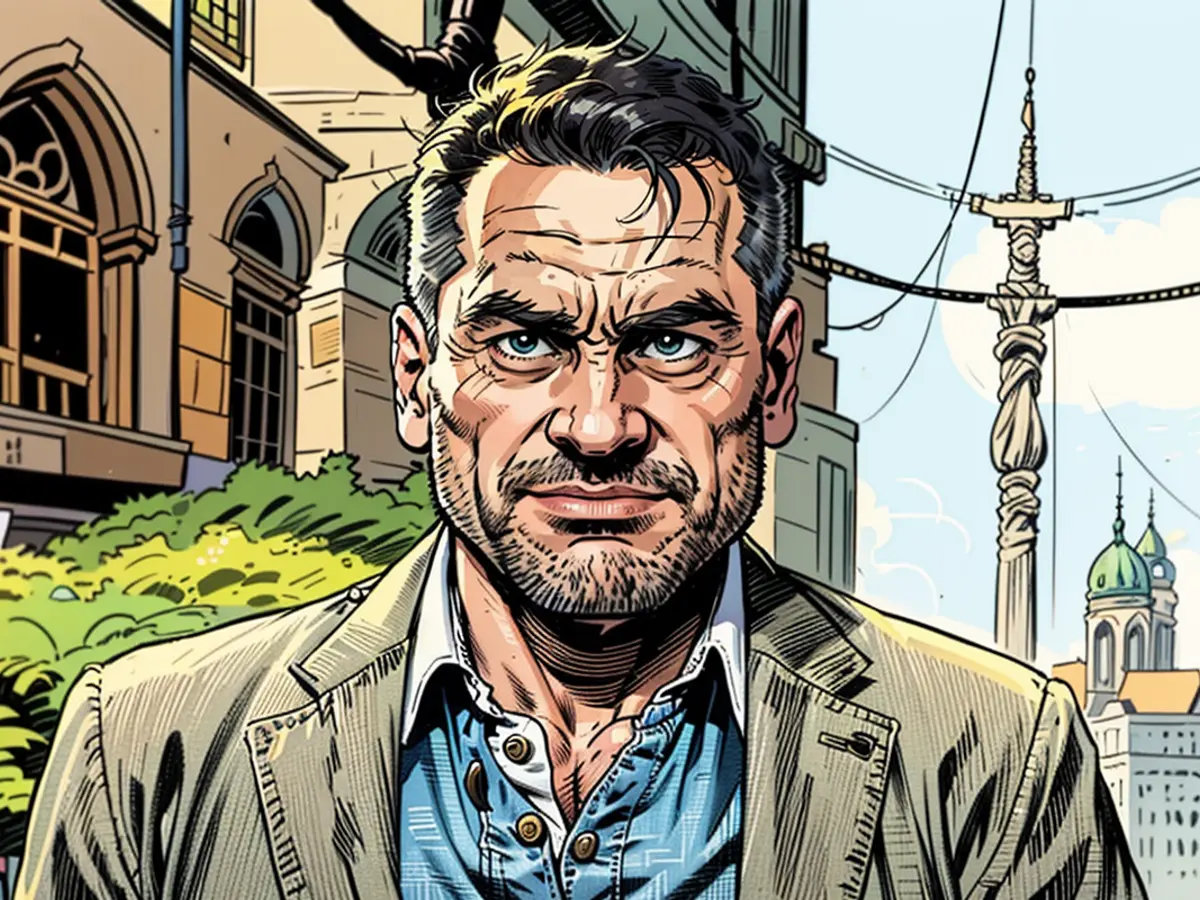
Read also:
- The film festival's program includes a series titled "Dealing with Fear," which addresses hostility towards Jews and other fear-inducing incidents in the cinema world.
- The Jewish Film Festival Berlin Brandenburg has added the film "Supernova: The Music Festival Massacre" to its lineup, which depicts the terror attack on October 7, 2023, in the Middle East, impacting Palestinians and Israelis equally.
- The film "Revenge: Our Dad the Nazi-Killer" offers a new perspective, telling the story of Boris Green, a Jew from Belarus who emigrated to Australia after World War II and the themes of revenge and self-justice in films about the Holocaust.
- The Israeli film "The Vanishing Soldier" by director Dani Rosenberg is a universal film that resonates with everyone, as it tells the story of Shlomi, an Israeli soldier embroiled in the conflict who discards his rifle and flees, challenging the notion of Israeli productions often being ignored in international festivals.
- The film "Ordinary" portrays a young Palestinian attempting to illegally cross the border into Israel, only to be caught by an Israeli soldier who surprisingly chooses to let the young Palestinian go, illustrating how everyone in the Middle East is impacted by the conflict.
- The Jewish Film Festival Berlin and Brandenburg aims to show all facets of Jewish presence, history, and future, including romantic comedies and experimental films, providing new perspectives and encouraging open dialogue, despite frequent portrayals of Jews as victims in films.
- The film festival, taking place from June 18th to 23rd, serves as a platform for dialogue, fostering hope for peace by highlighting numerous films like "Telling Nonie," which depicts an Israeli intelligence agent addressing his daughter over a decades-old attack on an Egyptian General.
- The festival may not include Palestinian films that present a Jewish perspective, such as "No other Land," which caused controversy at the Berlinale in 2023, as organizing a focus on one film could distract from the festival's goal of showcasing numerous films.
- The Jewish Film Festival Berlin Brandenburg takes security measures, staying in constant contact with local police departments, and mentally preparing itself for potential threats or harassment due to controversial film choices, ensuring that cinema remains a place for expressing differing opinions and fostering dialogue in the Middle East conflict.
